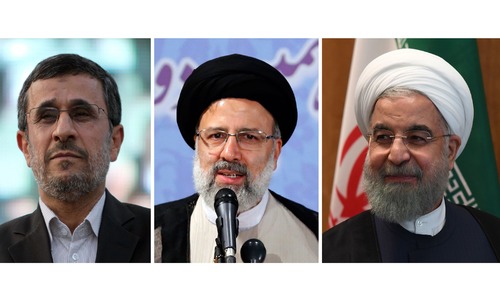Iran's Revolutionary Guard said on Sunday that the nation and its security forces have ended the wave of unrest linked to anti-government protests that erupted last month.
In a statement on its website, the Guard blamed the unrest on the United States, Israel and Saudi Arabia, as well as an exiled opposition group known as the Mujahedeen-e-Khalq, and supporters of the monarchy that was overthrown in the 1979 Islamic Revolution.
Price hikes sparked protests in a number of cities and towns late last month, and at least 21 people were killed in scattered clashes. The protests, which vented anger at high unemployment and official corruption, were the largest seen in Iran since the disputed 2009 presidential election, and some demonstrators called for the overthrow of the government.
The Guard is a powerful paramilitary force loyal to the supreme leader, Ayatollah Ali Khamenei. Many of the demonstrators protested against the Guard's massive budget, its costly interventions across the region, and against the supreme leader himself.
Hundreds of people have been detained since the protests began. They include around 90 university students, reformist lawmaker Mahmoud Sadeghi was quoted as saying by the semi-official ISNA news agency.
Iranian lawmakers held a closed session on Sunday in which senior security officials briefed them on the protests and the conditions of the detainees, the state-run IRNA news agency reported.
“It was emphasized that foreign elements, and in particular the United States, played a basic role in forming and manipulating the recent unrest,” IRNA quoted lawmaker Jalal Mirzaei as saying.
The United States and Israel have expressed support for the protests, which began on December 28 in Iran's second largest city, Mashhad, but deny allegations of fomenting them.
In recent days, government supporters have held several mass rallies across the country to protest the unrest.















































Dear visitor, the comments section is undergoing an overhaul and will return soon.